The UK’s unique low-volume car business could be heading for trouble as the 2030 electric car revolution gains momentum – unless it rapidly changes course. So says ace niche vehicle engineer Neil Yates, who has been concerned about the industry’s future for the best part of a decade, but believes he has an important lifeline to offer.
Until now, Yates has been best known for Rally Prep, the Newquay-based competition car business he launched in 2011 to build and prepare rally cars for customers all over Europe. But Yates has also built cars of his own design in a varied career and is a keenly sought consultant on R&D projects for high-tech UK firms like Ariel and Delta Motorsport, so his finger is on the industry’s pulse.
The basis for Yates’s concern is rapidly becoming clear to all: huge electrification changes are coming to all cars by 2030, but the niche industry’s ultra-low sales volumes mean most participants don’t have spare funds to invest in their medium-term future. Covid hasn’t helped: car makers are so busy finding orders to sustain their businesses in the immediate future that they simply can’t yet focus on the cars they’ll build by 2030.
But the pressure is about to ramp up, says Yates: “Well before the end of this decade, low-volume manufacturers will need new products for a new market, using new technologies and dealing with a new supplier group. Almost nothing, except perhaps the exterior shapes of more traditional vehicles, will be the same.”
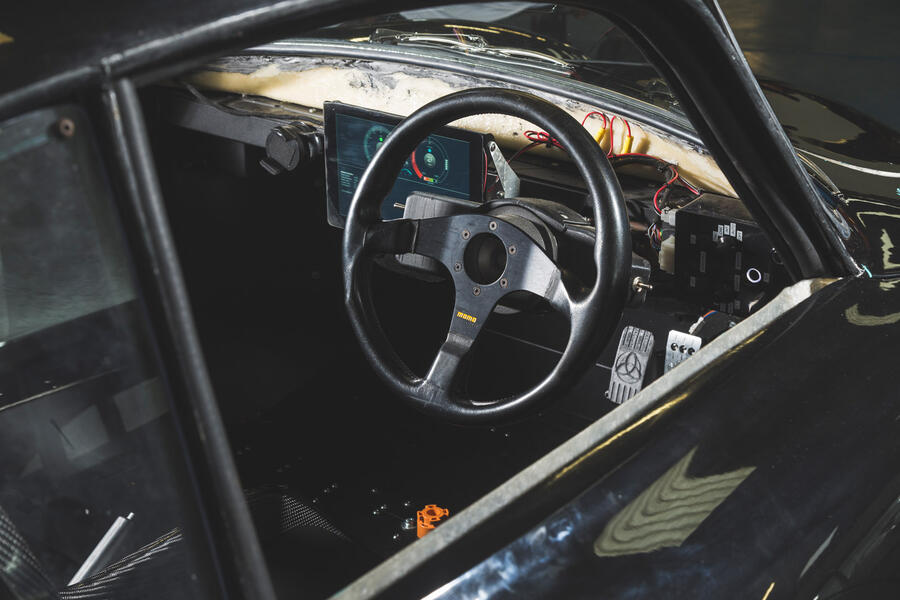
Yates believes he has a solution: a highly flexible chassis concept that’s configurable in so many ways that it can be used for almost any kind of electric or hybrid vehicle from quadricycle to bus. It’s a classic EV skateboard – a rigid, self-jigging aluminium platform chassis with an innovative integral battery enclosure that complies with all relevant ISO standards, meets current small-series crash legislation and can be made with relatively simple techniques and equipment.
The system’s layout and flexibility is neatly explained in the name, PACES, which stands for Passenger And Commercial EV Skateboard. Confident of its capabilities after a development phase that goes back nearly 10 years, Yates is now well on the way to “proving by doing”, as it were. He has launched a new company, Watt EV, to build an all-electric road car, the WEV Coupé, and prove beyond doubt that his theories and his hardware work in the real world.
Even Yates’s decision to make his new car look like an old one – the 1955 Porsche 356A, a favourite since childhood – is highly relevant to the PACES story. The Coupé will undoubtedly win attention, but its familiar shape shouldn’t divert people the way a new design might do, when it’s what’s underneath that really counts. Yates accepts that the EV skateboard idea isn’t new. Automotive giants have been proposing them for decades, technology companies like Lotus and Williams have elaborate skateboard concepts they hope will lure major customers, and there are various iterations already in production. So what makes PACES special?
o what makes PACES special? “We’ve specifically designed it for low-volume manufacture,” explains Yates. “PACES is flexible, scalable, highly adaptable and cost-effective. It’s ideal for small batches. At present, electrification is really, really hard for niche manufacturers. Component supply to meet their needs is in its infancy. Most don’t have the capability or the skill sets. PACES is a sophisticated design that already complies with all relevant standards. It’s a modern, thoroughly engineered, premium product.”
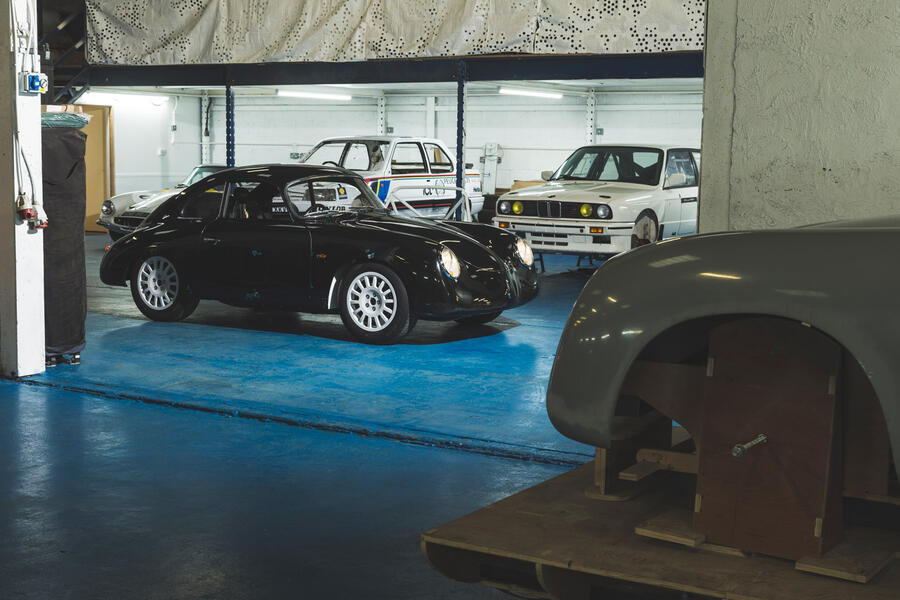
Better still, Yates explains, PACES comes with a ready-made team of component suppliers – one big advantage of Rally Prep’s involvement with other potent small businesses, in grant-funded research projects administered by the Niche Vehicle Network and the Advanced Propulsion Centre. And against all odds for a self-taught automotive engineer, Yates has also found that handling the application forms and interviews needed to raise grant funding, and supplying the complex data required to meet ISO standards, has become part of his skill set.
Largely as a result of this participation in grant-funded projects, Yates and Rally Prep have close relations with companies such as Crewkerne-based Ariel, Potenza Technology (a supplier of new-tech EV control systems in Warwick) and Equipmake (a fast-expanding Norfolk electric motor manufacturer). There are others.
One especially close link is with Stalcom, based at Pershore, whose FlexTech ready-made lightweight extrusions are designed to interlock and bond accurately together – without any need for jigs – to form extremely rigid chassis structures that suit many different applications. There’s little or no need for tooling or post-assembly machining, which is always costly.
These are the keys to low cost, Yates explains; bigger-scale skateboard concepts use bespoke corner castings and extrusions to do what PACES can achieve with flat, laser-cut pieces.
Yet just like the best of them, a rigid PACES chassis can be delivered to within 1mm of variability across the whole structure, from end to end.
Looking back, Yates feels the phases of his varied car-building career have equipped him “pretty well” for the diverse requirements of this project. Born into a car-mad family (he was collected from hospital in his dad’s rally-prepped Cooper S), he stepped away from formal education at A-level stage to do his own thing. Building cars for a hobby turned into a business when he moved to Cornwall as a 25-year-old, and his love for the region – his workshop is down the road from Newquay airport – is now so strong, he swears he’ll never move.
Success at motorsport and demand for his services in the mid-2000s encouraged Yates to design and build a car of his own, the Subaru Impreza-based Murtaya roadster. Customer cars were launched in 2008, but though Yates and his partner sold about 40 units, the project hit the buffers and by 2011 he had “no premises and no car, just a bike for getting around”. Those were tough lessons.
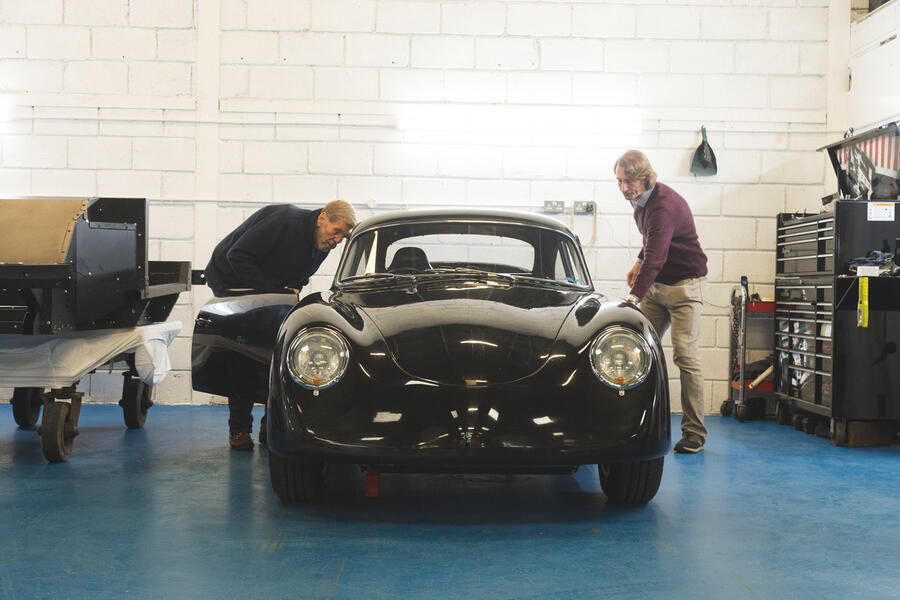
However, out of hardship and necessity, Rally Prep was born. “I went back to doing what I knew I was good at,” says Yates. Despite what seems like a remote location, it has become a highly successful business, carving a reputation for quality work that led to a contract to prepare rapid, works-sanctioned Toyota GT86 rally cars that won a class title in the British Rally Championship in 2016.
But by then Yates and his “super-skilled group” of Rally Prep colleagues were involved in other projects, among them a forerunner of PACES, also a configurable aluminium chassis, which they showed at the Goodwood Festival of Speed (“nobody was interested back then”) plus R&D work for other companies. But Yates’s rising consciousness of how the changing world of propulsion would soon strike Britain’s unique niche vehicle market kept driving him towards his own solution to its problems.
The wider world is only just becoming aware of Yates’s PACES concept, but whispers about it have already elicited expressions of interest – one from a “big name” company whose plan for a factory is already backed by semi-government funding, another for a sub-3.5-tonne front-drive EV van, and a third proposing a big-scale overseas bus project.
The smell of success is not going to Yates’s head, however. “I’ve already experienced the highs and lows of the niche industry,” he says, “so I’m not getting carried away. But this time it does look as if our technology is ready to suit the way the market’s changing. Things might start coming together quite quickly.”
A dream car come true
Neil Yate's love of the seminal 1950s Porsche goes back to childhood; he had one on his bedroom wall and swore one day he’d own a full-sized version. He can’t have imagined, however, that the car’s compact curves would sit above an up-to-the minute aluminium modular chassis of his own design. Or an electric powertrain capable of driving it for 200 miles. Yet both are crucial components in Yates’s 2022 WEV Coupé, a car with that classic Porsche outline, built on a PACES chassis and powered by a rear-mounted electric motor.
It’s a simple car compared with much of the machinery Rally Prep has built, but Yates is still delighted that the first prototype “just worked”. Nine months of trials have already been conducted and they’ve been very promising. The plan is to build, develop and publicise the car through 2021 (despite Covid, Watt EV is only a few weeks behind the lively schedule Yates laid out a year ago) and customer cars should start to flow early next year.

After its latest round of developments, the first prototype weighs just 902kg. Yates expects the production version, with all running gear and a relatively light and simple interior, to weigh less than 1000kg. His simulation tools, which after recent tuning align accurately with the prototype’s real-time performance, predict that a production car with a single 107bhp motor will deliver 0-62mph acceleration in 7.2sec, or 5.3sec with the optional 160bhp unit. The battery is a 39.6kWh unit that uses Nissan Leaf cells. With the lower-powered motor, the indicated WLTP range is 230 miles, or 180-190 miles in the real world.
That’s impressive, and underscores the importance of light weight and good aerodynamics in an EV. Though venerable, the Porsche outline is sleek, the underbody is flat and the frontal area is comparatively small. The WEV Coupé uses the 356’s body dimensions and wheelbase almost exactly, but it has neater lights, finer panel gaps, smoother flanks and wider tracks so its wheels fill the arches better than the originals ever did.
Yates is keen to make his coupé practical, a daily driver. He scorns the EV “arms race”, which results in a heavy battery, a big motor, wheels and tyres needlessly wide, brakes needlessly big, running gear needlessly heavy and a car whose road ability is upset by unnecessary unsprung weight.
“It’s easy to build a quick electric car,” he says. “But if you do, everything gets heavy and you disappear down a two-tonne wormhole. For us, the challenge is to see how light we can make our car, and how nice to drive. We’re not chasing the last ounce of outright grip, but we want good comfort, really good steering and a nice handling balance. That’s why we’re going for 50:50 weight distribution and 16in wheels with 65-profile tyres.”
Watt EV’s plan is to build about 20 cars a year in the existing factory near Newquay airport, priced from £75,000 a throw. And if the demand far exceeds the planned number? “Well,” says Yates rather mysteriously, “it’ll be a nice problem to have, won’t it?”
READ MORE
New electric cars 2021: what’s coming and when?
Analysis: Is 2021 (finally) the year of the electric car?
Road to 2030: What will electric car charging cost the consumer?

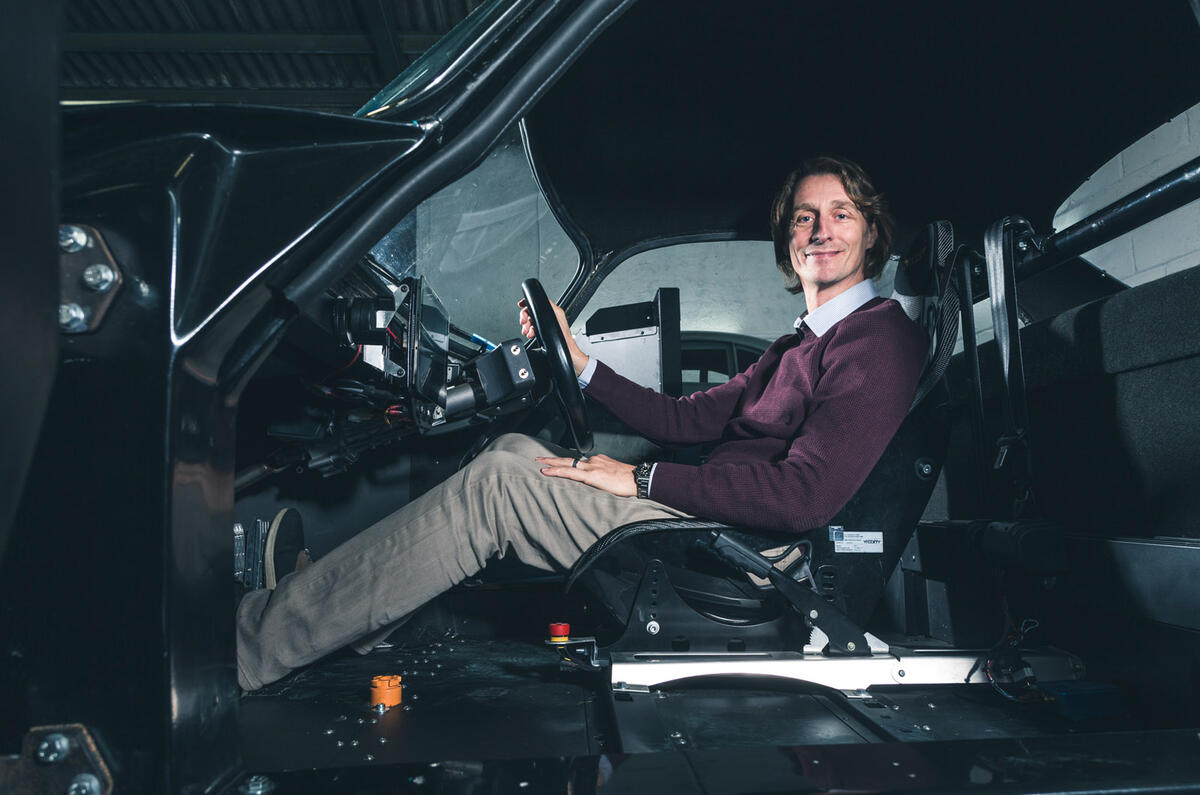
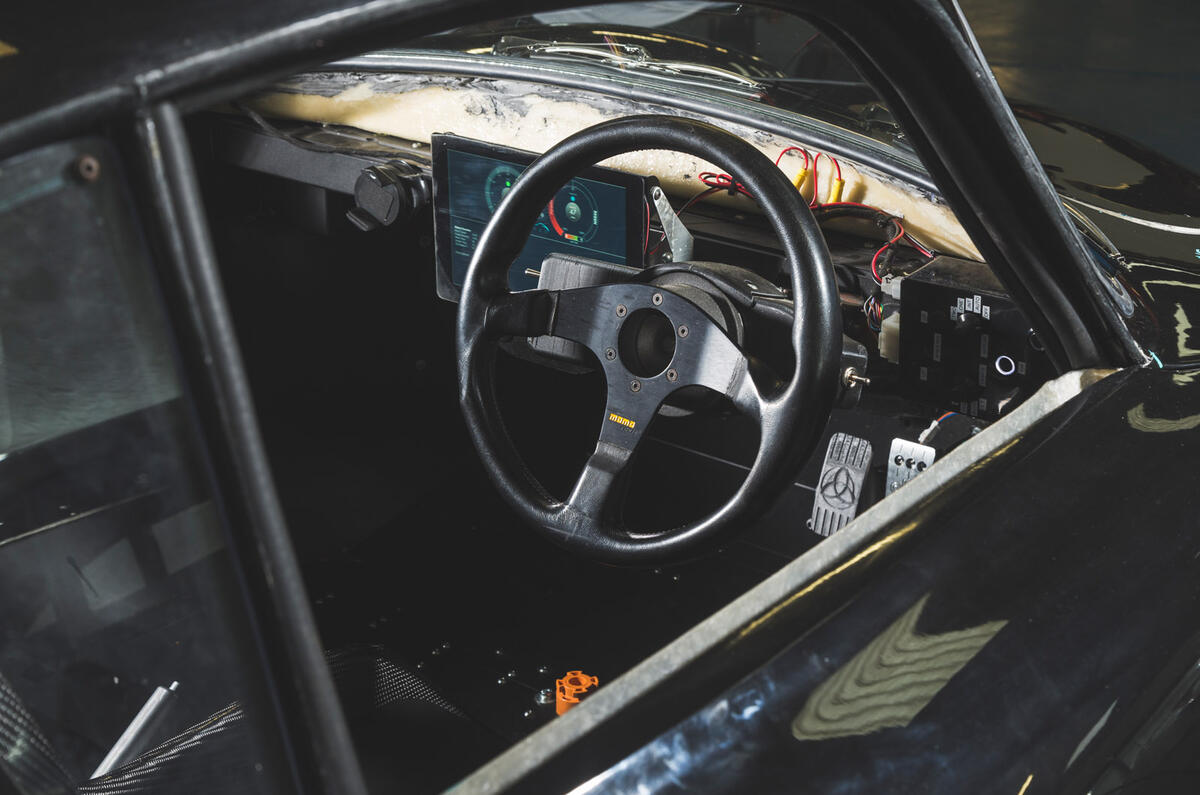
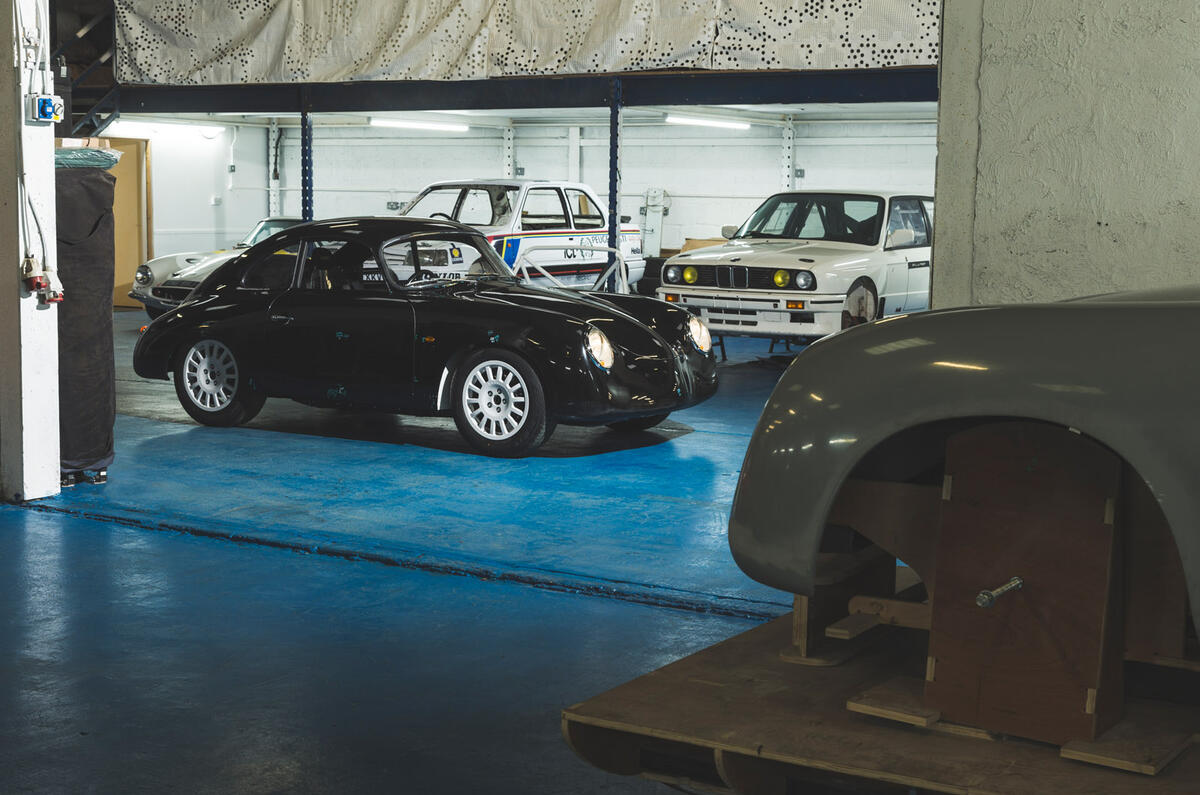
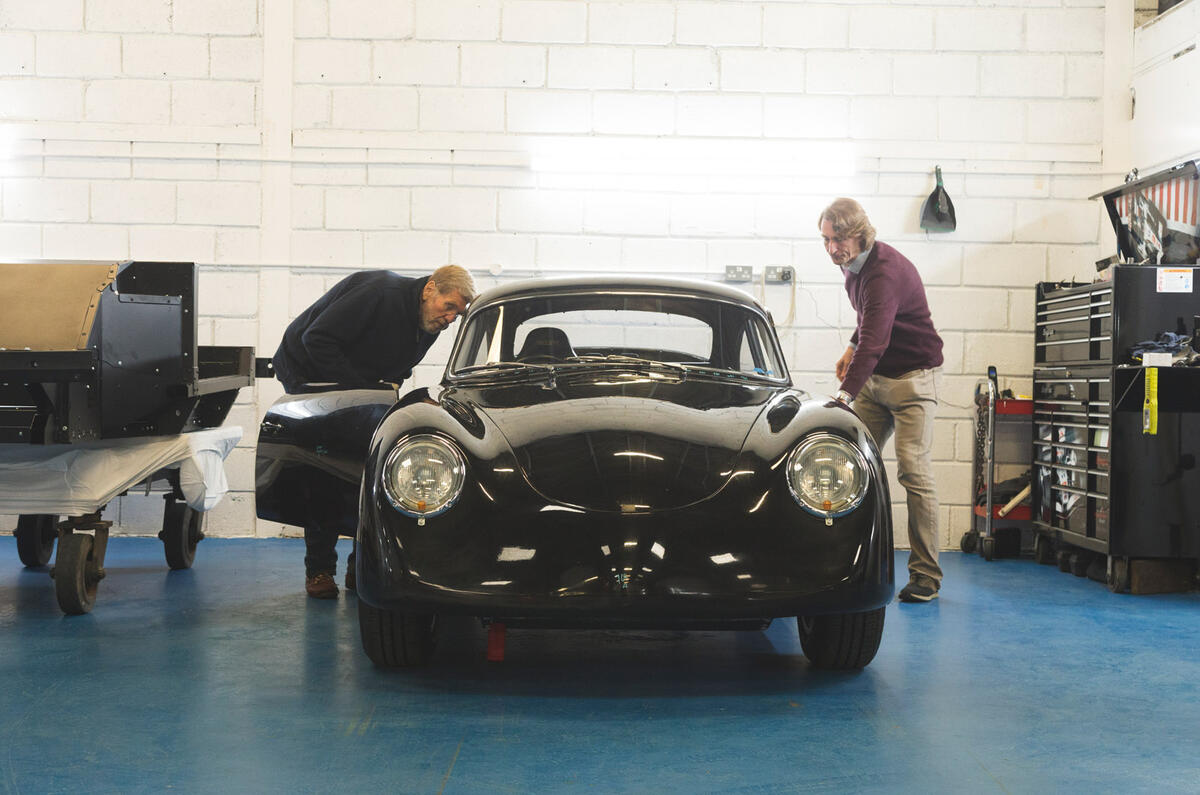

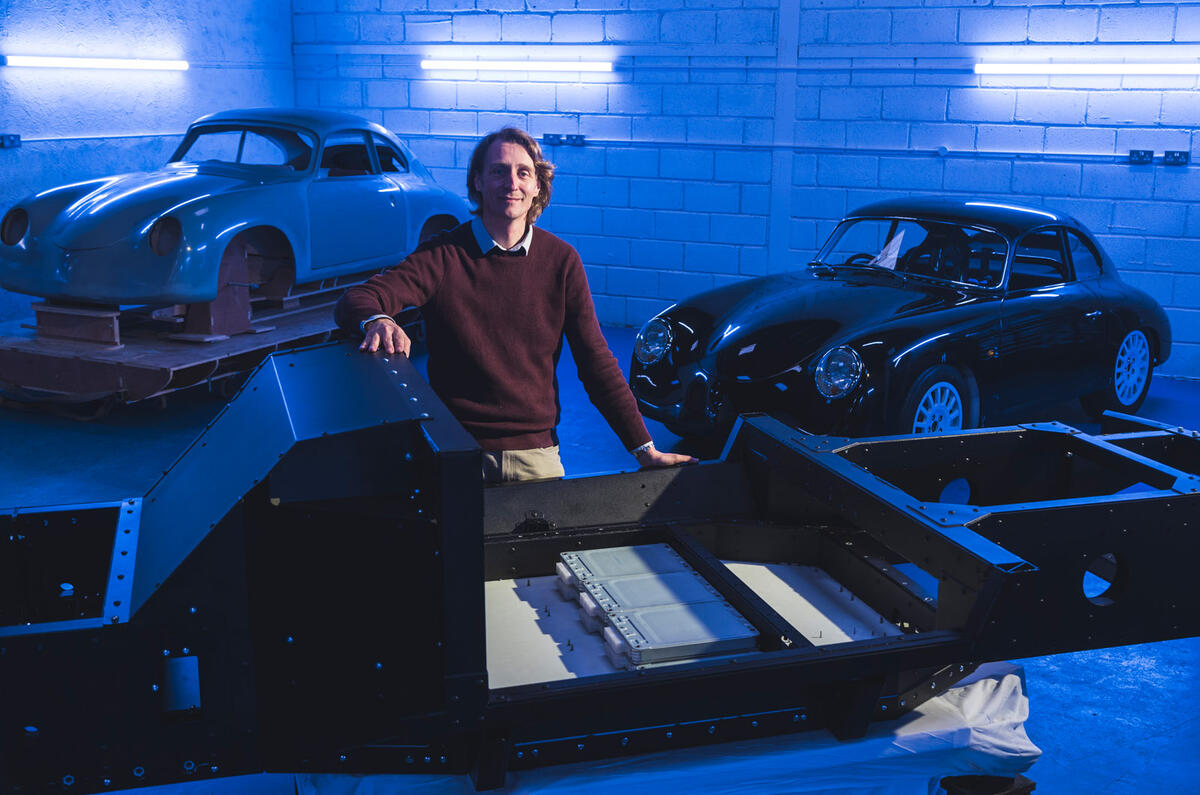
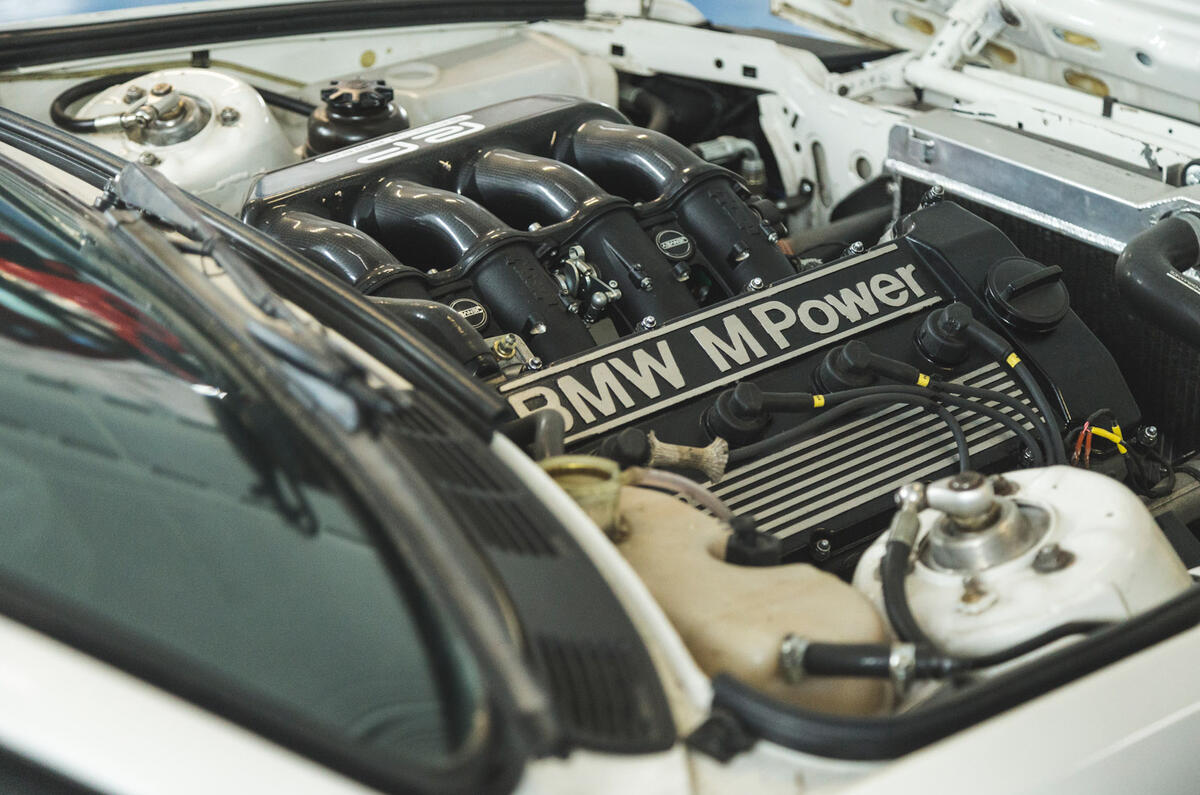
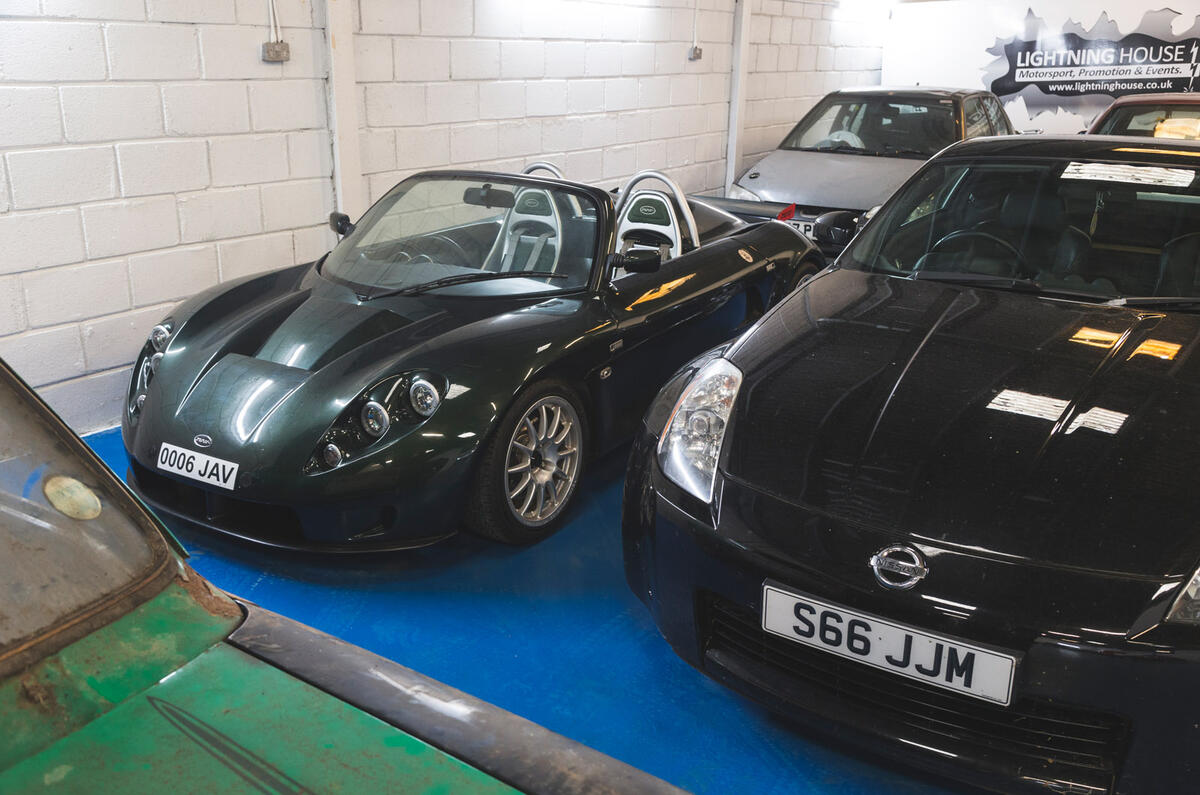














Join the debate
Add your comment
I wonder who the "big name" is that's showing interest? The trouble is, there seems to be too many "not invented here" attitudes among the main industry which is too stuck into massive operations requiring huge investment from which it cannot extricate itself. As an example, very little interest seems to have been shown in Gordon Murray's iStream system that would appear to offer similar benefits (perhaps the two ideas should be combined!). I like the way this man thinks though, and would love to see the many over-the-top, overweight EVs that seem to be proliferating everywhere disappear straight down a two-tonne wormhole. He goes on to mention other wonders: comfort, good steering and handling and 16" wheels with 65 profile tyres - bliss!
I applaud his determination,and the other small British businesses, doing what they do best, trouble is, that's not enough,Britain needs to succeed in other areas, big volume cars sales, and not just in the UK, but globally.
Good luck to him. Sounds a great solution and already done in many other industries, allows other companies to focus on making a unique low volume designs but with the benefits of a ready approved platform - a far better idea than Britains richest man making a petrol engined copy of an old Land Rover designed by a yacht builder to be built abroad